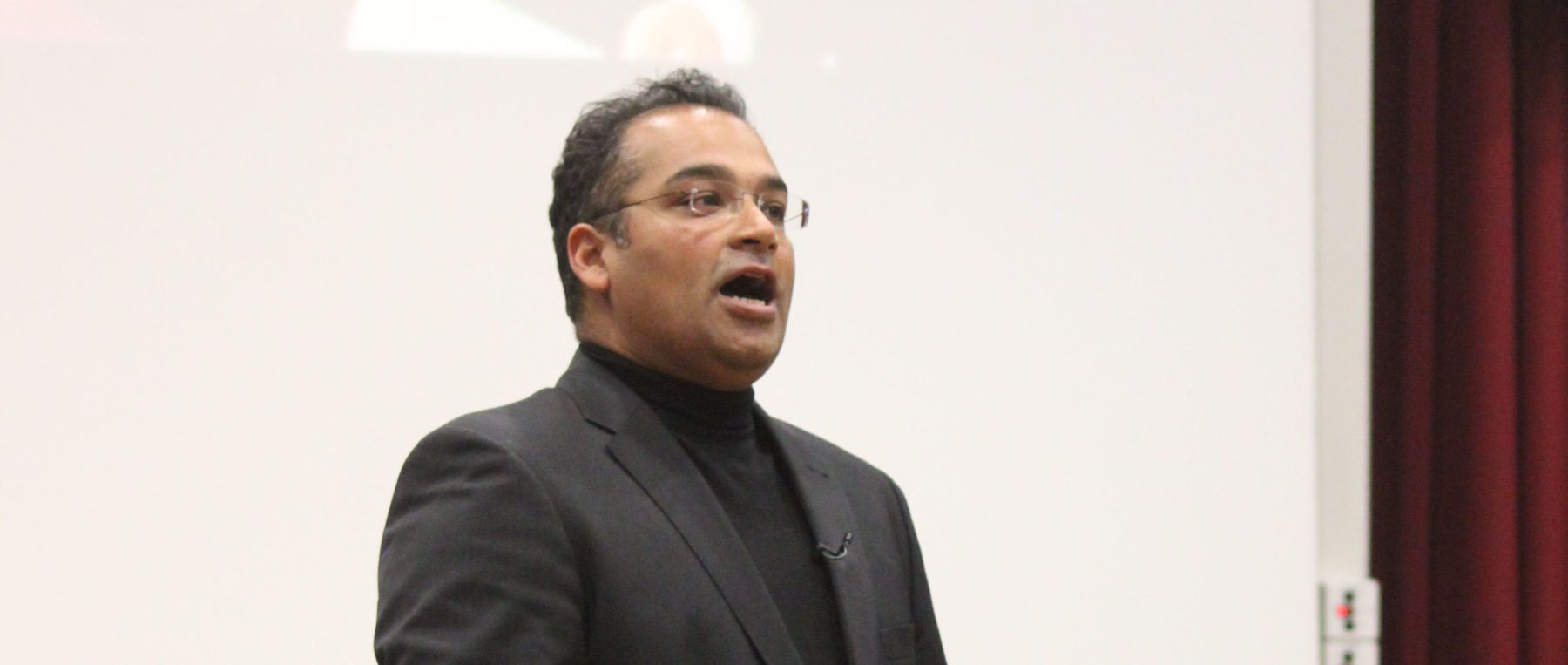A career in front of the camera
Krishnan Guru-Murthy on becoming one of the UK’s most notable news presenters
Krishnan’s path into presenting was, in his view, fairly lucky. It started in sixth form when he was involved in debating. After that, he entered a competition for the Observer, and then presented Open to Question for the BBC. From there he went on to do more media work before presenting Newsround for four years. He started working for Channel 4 in 1998 and is the second longest serving broadcaster after Jon Snow.
A good reporter [must have] an enquiring mind as well as a desire to make trouble and be mischievous.
One interesting question was raised by a member of the audience about whether he found it difficult to enter the industry as a newsreader of colour. Krishnan said that, at the beginning of his career, diversity was desired by media producers so it was much easier for him to be successful. He added that his middle-class background, including going to a good school and speaking without a foreign accent, made him “palatable” for audiences and producers were excited that “he could speak, walk, talk and he’s brown!”
He also acknowledged that there are still pervading issues with diversity in terms of sexuality, gender and disability in the industry and while producers feel they have achieved diversity – the reality is that this only exists within the lower levels of the business. Aside from those actually doing the presenting, behind the camera the media industry is controlled by a very narrow spectrum of people.
He went on to speak about important lessons that he had learned during his career. Krishnan considers the necessities of a good reporter to be an enquiring mind as well as a desire to make trouble and be mischievous. You also need to be fuelled by a need to tell the world things it wants to find out and it helps to wake up each morning with something to be angry about!
Another topic discussed was the evolution of the news industry over the past few years and all of the differences between now and when since he started his career. Broadcasting has progressed to the point that you can film almost anywhere without the need for large crews and vast swathes of equipment. Now, he says, all you need is a phone and good 4G signal.
Social media has also transformed the news with Twitter and Facebook acting as fantastic resource for breaking news and sharing trending global topics. Channel 4 puts all news on Twitter first so you need to have a good awareness and presence on social media to be effective in the news industry. However, social media has negatives too. Being in direct contact with the general public means they can also correspond with you freely which, sometimes, can become a problem, especially when he’s expressed controversial views.
Knocking the interviewee around a bit to get more interesting content is almost a necessity.
When he discussed his interview style, Krishnan admitted it is controversial, but explained that tough questions are called for in order to break new ground during interviews. Knocking the interviewee around a bit to get more interesting content is almost a necessity.
A question was also asked about whether the media was used as a tool for political agendas. He explained that some stakeholders will ring up beforehand and ask for the stories to be reported from their side. Other times, people high up in politics will write to the editor of the programmes and try and influence content. But the way to be a good newsreader is to try to retain fairness, truth and integrity. The aim is to present a balanced overview and not be swayed otherwise. The news is an art, not a science.
The recent boom of “sausage factory” journalism has meant that often the quality of news reporting has declined. However, there are still many opportunities for young journalists to involve themselves in the business. Krishnan said there is a huge value in student journalism as a means of accessing the industry, especially with a newspaper as well connected as the Boar. Crucially, we need not consider ourselves as mere student journalists.We are journalists.

Comments